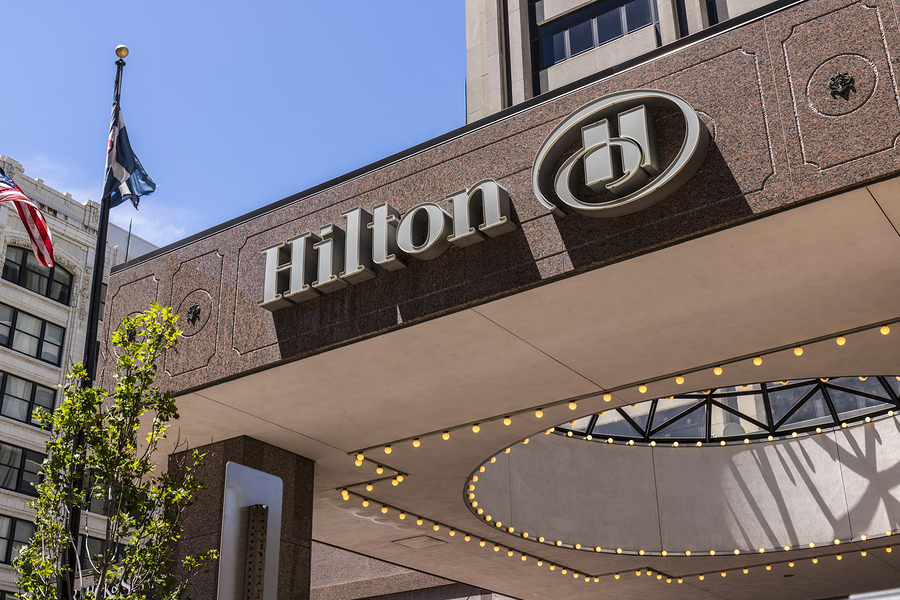Three victims of sex trafficking have sued three major hotel chains – Hilton, Wyndham, and Choice Hotels – in parallel lawsuits, maintaining that the companies exercised gross negligence about on-site prostitution at Houston branches despite corporate policies that promote social responsibility.
Filed in December, the lawsuits contend that Hilton Worldwide Holdings, Inc., Choice Hotels International, Inc., and Wyndham Hotels and Resorts, Inc. have not done enough to prevent sex trafficking at their franchises. The cases accuse the companies of negligence and violations of federal and state laws that prohibit trafficking.
RELATED STORY:
Police identified the three women as trafficking victims at Houston hotels owned by these chains, lawyers said. Two were teenagers at the time; one was an adult. The lawsuits said:
“Traffickers have long capitalized on the hotel industry’s refusal to adopt companywide anti-trafficking policies, refusal to train staff on what to look for and how to respond, and failure to establish a safe and secure reporting mechanism, and they have exploited the seclusion and privacy of hotel rooms.”

Houston lawyer Annie McAdams is part of team of attorneys that sued three major hotel chains this month on behalf of three sex trafficking victims in Houston.
Annie McAdams, a plaintiffs’ lawyer involved in the team effort, has forged a reputation around undertaking such cases, suing Facebook, Backpage, Salesforce, and truck stops for their roles in promoting sex trafficking.
RELATED STORY:
McAdams, whose firm is partnering with others on the case, stated:
“What’s notable about these cases is it’s the first effort targeted at the parent hotels. The parent companies in state court have thrown up their hands and said we’re not responsible for anything that happens at these hotel locations. But they make money on branding, licensing, advertising and franchise fees.”
“It’s not a secret they know that sex trafficking is a problem — they say so on their websites and they make representations to the public that they’re doing everything they can to prevent it. They’re not doing enough.”1
Irine Spivak, a spokesperson for Hilton Americas, said the company has a history of standing up to would-be traffickers. She said:
“While we cannot comment specifically on matters pending litigation, Hilton is committed to complying with the law in every country and region where it operates, and always seeks to advance respect for human rights. We condemn all forms of slavery, forced labor and human trafficking, and encourage our suppliers and business partners to share in this commitment.”
“We have a long-standing record of opposing human trafficking and sexual exploitation, demonstrated through our efforts to provide anti-human trafficking training to all team members across all brands and properties.”1
RELATED STORY:
A Choice Hotels spokesperson offered a similar statement, referencing ECPAT, an international advocacy group that has worked for decades to end the commercial sexual exploitation of children, especially in Asia. The company that owns Comfort Inn refused to address the allegations in the case.
However, Choice Hotels did make the following statement:
“Choice Hotels condemns human trafficking and, as a signatory of ECPAT’s Tourism Child-Protection Code of Conduct, we are committed to working with our independently owned and operated franchised hotels to combat this violation of human rights.” Those hotels that violate the agreement can lose their franchise rights, according to the Choice statement..
“We provide resources and training to management and employees of our franchised hotels, including from the Department of Homeland Security and ECPAT, to help educate and arm them with the tools they need to help identify and stop human trafficking. We are committed to conducting business free from violations of human rights.”1
RELATED STORY:
Wyndham Hotels and Resorts did not respond to a request for comment.
The lawsuit says the hotels and “other nefarious enablers” must be held responsible for their role in the harm. As the Houston Chronicle points out:
One of the victims, named in pleadings as Jane Doe No. 6, was a 15-year-old high school student in 2016 when she was drugged at a party. A pimp took the girl to a Comfort Inn in the 6600 block of the Southwest Freeway at Westpark and sold her to johns there for more than a week.
The girl, who now is 17, since has completed a Harris County court diversion program that helps with addiction.1
In referencing Jane Doe No. 6, McAdams added:
“In her case, given the frequency of the visits, they should have known what was going on.”1
Another Jane Doe seeking damages was trafficked in 2012 at a La Quinta Inn in the Galleria area. The third lawsuit was brought by a Jane Doe who was sold to johns at a Doubletree near Hobby Airport. The lawsuit says:
“These victims have been left with lifelong physical, emotional, and mental injuries. No longer will businesses profit off of the exploitation and mistreatment of others.”1
RELATED STORY:
The vast majority of reported incidents of trafficking take place in hotels, as noted in the video above. In fact, according to the National Human Trafficking Hotline, 92 percent of calls received in 2014 involved reports of incidents at hotels.












